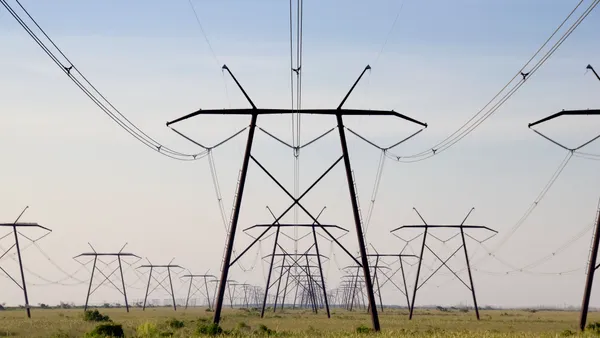Dive Brief:
-
The U.S. Environmental Protection Agency pushed back on Thursday against federal lawmaker complaints that the compliance flexibility it granted power plants and other regulated entities last week gave those facilities license to pollute.
-
House and Senate Democrats this week wrote letters to the EPA, criticizing its move to give industry leeway on air and water pollution compliance. Their comments joined a petition from several environmental groups asking the agency to provide more oversight on noncompliance.
-
Also on Thursday, the Federal Energy Regulatory Commission updated compliance guidelines to give FERC-regulated entities more flexibility. Lawyers say the move is reasonable given unprecedented workforce shortages and other COVID-19 related sector disruptions.
Dive Insight:
Congressional Democrats were critical of several of the EPA's moves this week, including its final rulemaking on automobile efficiency standards, which lowered the carbon emissions standards the industry needs to meet, relative to Obama-era rules.
"Rolling back emissions standards for vehicles and relaxing important monitoring and reporting standards during this pandemic is a serious error," Sen. Dianne Feinstein, D, said in a Tuesday Tweet accompanying her letter to EPA Administrator Andrew Wheeler. "The administration needs to let California's tailpipe emissions standards continue unimpeded."
Sixteen House Democrats wrote a letter to Wheeler Monday as well, worried loosened oversight on pollution standards could exacerbate health concerns.
"Relinquishing responsibility to hold companies accountable for our shared air and water in difficult times sends a message that their license to operate does not rely upon their commitments to good behavior, but whether they can convince government officials that the burden of ensuring the safety of American lives is subjectively 'too hard,'" the letter reads.
It's unimaginable that during a public health crisis, @EPAWheeler is bowing to special interests like Big Oil by stripping environmental protections that will hurt our ability to **breathe**. I'm leading my colleagues in fighting back against this reckless proposal ⬇️⬇️ pic.twitter.com/NtXUhy6wS3
— Rep. Katie Porter (@RepKatiePorter) April 1, 2020
But the EPA pushed back on this notion in its Thursday letter.
"Irresponsible allegations that EPA is giving industry a license to pollute mischaracterizes the Agency's response to those risks and impugns the work that the dedicated Agency officials continue to perform during this challenging time," wrote Assistant EPA Administrator Susan Bodine in the letter.
"EPA expects regulated facilities to comply with regulatory requirements, where reasonably practicable, and to return to compliance as quickly as possible, once the COVID-19 threat subsides," she wrote.
Under the EPA's modified regulations, power plant operators would need to prove that any compliance violations were tied to COVID-19 related disruptions. Over 22 environmental groups sent a petition to the EPA Wednesday calling for the agency to "at a minimum" promptly inform the public of any pollution compliance violations, including a facility's failure to report or monitor air or water quality inspections.
"Without such information, members of the public cannot adequately protect themselves against the increased risk of harm created by EPA's actions," the groups wrote.
FERC also shifted compliance requirements in response to potential regulatory violations, but its move was met with less controversy.
"This struck me as a very reasonable set of guidance and tools for FERC-regulated entities to handle what is an unprecedented situation," General Counsel and Managing Director at Advanced Energy Economy Jeff Dennis told Utility Dive in an email. "I certainly didn't read this as FERC backing off on enforcement or allowing any 'free passes', but rather as an attempt to provide some needed flexibility."
COVID-19 related impacts could, for example, "create staffing issues that require temporary waivers of the Standards of Conduct to ensure that employees can communicate and move around as needed to keep power and gas flowing to customers," he said.
The commission's relaxed standards include delegating some waiver requests to the Office of Energy Market Regulation, waiving in-person meetings and document notarization.
"In total, I view these as evolving efforts to ensure that the Commission's regulatory mandates are efficiently and effectively addressed, and granting sufficient flexibility to regulated entities to respond to their regulatory obligations, but to provide flexibility to focus on reliable uninterrupted operation," former FERC Office of Administrative Law Judges attorney-advisor Michael Yuffee told Utility Dive.
That said, market participants shouldn't view these rules as FERC having "its guard down," he said.
"I wouldn't view any of these sort of orders that are promoting flexibility and efficiency as a sign that you can relax your own compliance with ongoing commission regulations," he said.
"This could be a circumstance where, after the fact, the commission will be looking at how market participants behaved during this time period, and you certainly want to be on the right side of that kind of scrutiny."











